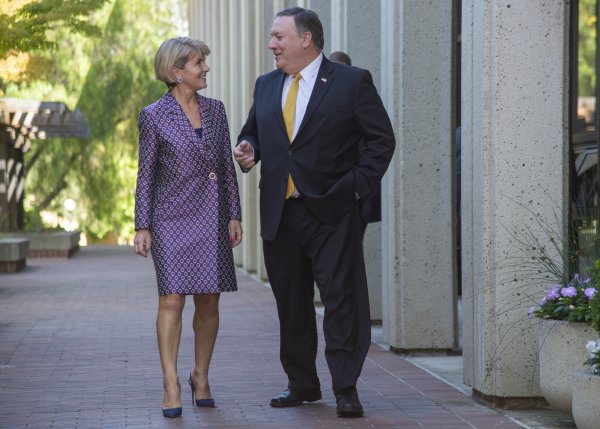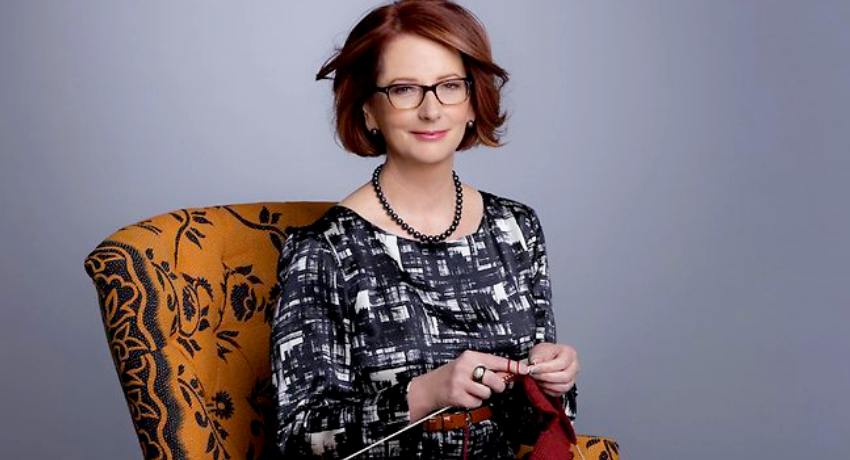In a recent interview Julia Gillard suggested that in an era of #MeToo, we, as a society, would be less tolerant and more willing to speak out against the kinds of sexist abuse she experienced as prime minister. But is Gillard too optimistic? Last week, there were revelations that two Liberal Party staffers did indeed speak out against alleged sexual abuse to their managers, only to find that their workplace buried their complaints in efforts to protect the Party’s image and leaders.
The gender politics of Australia’s political leadership culture remains a pervasive concern. It continues to impact the lives, careers, and opportunities of political leaders and their staff, and the very nature of Australian politics. When these politics are malignant and neglected, they undermine and discredit us all.
In the past few years, we have seen accusations of bullying and evidence of a toxic culture in our political parties; we have seen glacial movement in efforts to achieve gender parity across government and its bureaucracy; we have seen hostile responses in some quarters to the idea of quotas and reforms to candidate selection; we have seen accusations of sexist and unnecessarily aggressive language in Parliament, and we continue to see a lack of diversity in leadership positions in the House and in the Senate. These issues are all inter-connected through gender politics.

In a tribute to Julie Bishop’s (pictured here with US Secretary of State Mike Pompeo) 20 years of political service, Scott Morrison called her ‘classy’ and noted her excellent shoes.
And these gender politics seemed to intensify in the lead up to the election. Many of us were attuned to the role gender politics played in Julie Bishop’s resignation alongside other senior Liberal women. Gender politics were pervasive too in Scott Morrison’s rise on the back of successive leadership spills. To the keen observer, gender discrimination and competing masculinities had at least some role – and a pernicious one at that – in how these episodes unfolded.
Since the election very little has changed. In recent weeks we have seen the release of a report by the Lowy Institute investigating what they described as the ‘severe imbalance’ in the workforce participation of men and women in senior foreign affairs roles. Meanwhile, Tanya Plibersek recently told Julia Gilliard in the latter’s podcast series that she was unable to reconcile being the Leader of the Opposition with her family responsibilities. And with each passing interview Julie Bishop appears more willing to publicly acknowledge gender inequality in politics. She recently admitted that when Tony Abbott self-appointed as Minister for Women, “it was quite clear that we have some way to go”.
And of course, it is not just Australia which grapples with gender politics in its political leadership culture. In the US, the possibility of a second Trump term legitimates a different (but probably not new) type of masculinity in leadership that distances itself from that of Obama and others and is helping to redefine what it means to be presidential. When Theresa May stepped down as Britain’s second female Prime Minister recently, she noted: “This is a country of aspiration and opportunity and I hope that every young girl who has seen a woman prime minister now knows there are no limits to what they can achieve.” Closer to home, the recent visit by New Zealand’s Prime Minister Jacinda Ardern reminded us that there are different – arguable more inspiring – ways to model gender relations in political leadership.
We must be vigilant about the ways in which these gender politics are both instrumental and insidious
And so, both in Australia and abroad, the issues associated with the gendered politics of leadership are far from resolved. While sometimes it is simply present in how political leaders perform their masculinity and/or femininity – in Julie Bishop’s Armani suits and Scott Morrison’s baseball caps – we must be vigilant about the ways in which these gender politics are both instrumental and insidious. And we must be prepared to call it out.
First, we must call it out when gender power relations shape conceptualisations of legitimate leadership in Australia, particularly when it excludes women. Scott Morrison’s legitimacy as a leader is – for some perhaps – tied up in how he performs his masculinity. Julie Bishop’s popularity with the electorate was shaped by how she performed her femininity. And the success of the former and failure of the latter in last year’s prime ministerial leadership contest might be in part explained by how gender politics shape our sense of legitimate prime ministership. In his tribute to Bishop’s 20-years of political service, Morrison – in parliament – described her as ‘classy’ and noted her excellent shoes. While we might roll our eyes at yet another reference to what women wear, such statements undermine her party room legitimacy.

Jacinda Ardern has demonstrated more inspiring ways to model gender relations in political leadership
Second, we must reflect upon the gendered politics in language, public discourses, and political debates. Seven years on from Gillard’s misogyny speech, Sarah Hanson-Young and David Leyonhjelm are in defamation court over the latter’s alleged sexist comments to the former on the floor of the Senate. In interviews Gillard has reflected upon the vitriol she experienced as leader – and noted the apologies she has since received from those in the media, in politics and the general public who were complicit in the abuse she received or failed to act. This is a start, but there is still a long way to go.
Third, we must be more attuned to the gendered use of language in policy debates. Revived electoral campaigns to be tough on borders and “stop the boats” or criticising the lack of grunt of electric cars arguably rely upon gendered (and nationalist) constructions of masculine strength and protection in favour of feminine weakness.
Fourth, we must address the gendered structures that govern access to political leadership. Morrison’s election catch-cry that ‘those who have a go will get a go’ cover overs the deep, structural discrimination that exists in this country around more things than just gender. For women political leaders, this might be the ‘weight of a thousand feathers’ as women are expected to take on the emotional, support, or mentoring work of leadership; it might be the ‘sinking by a thousand micro-inequalities’ where an endless load of seemingly smaller issues (like parliamentary sitting times) stack up to squeeze women out of the pipeline of political leadership.
While Bishop advocated for a diversity in leadership styles, that diversity will only have legitimacy if the organisational cultures allow for it
Finally, gender politics pervades attitudes to leadership styles themselves. Julie Bishop recently commented that she found women to better at leading through team-building and empathy while, she argued, men are more transactional. While there’s research to support this claim, research also suggests that organisational culture matters more. While Bishop advocated for a diversity in leadership styles, that diversity will only have legitimacy if the organisational cultures allow for it.
If we assume that not all of these gender politics are benign in either their operation or impact, then we need to continue (or begin) an open conversation about gender bias in Australia’s political leadership and how it might be addressed. While we might applaud Julia Gillard’s optimism that things are improving, the evidence doesn’t yet support it; there is still much work to do.




